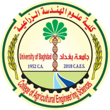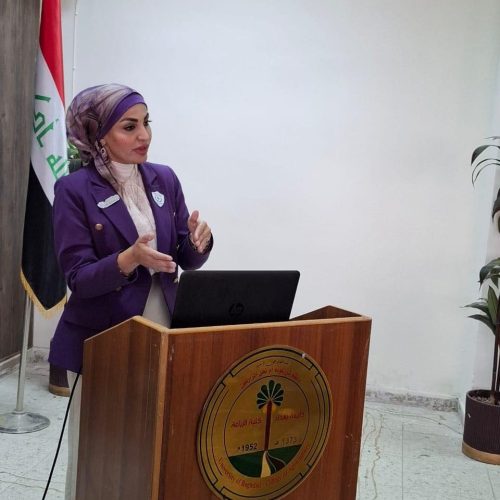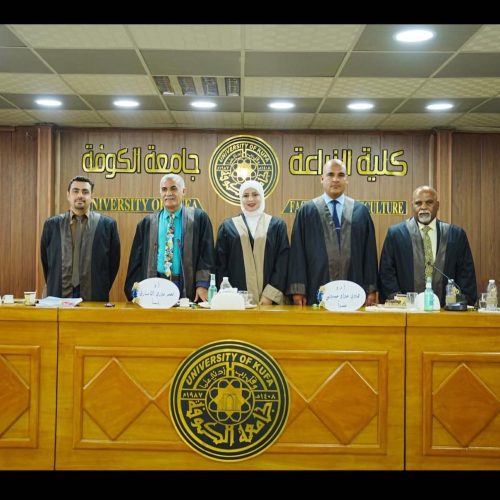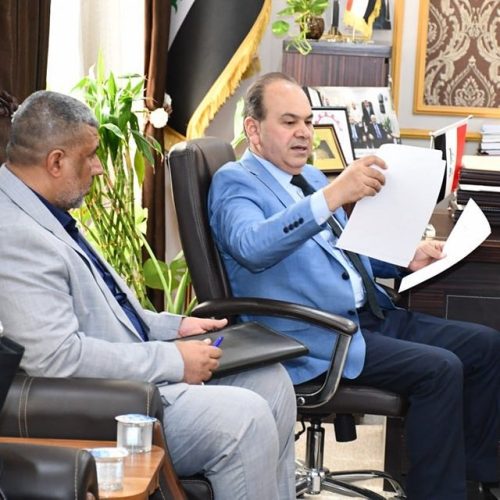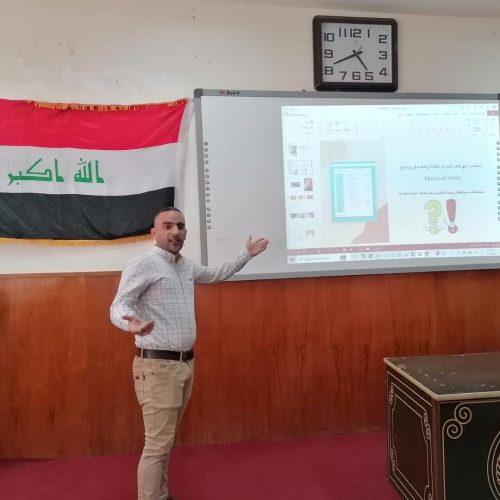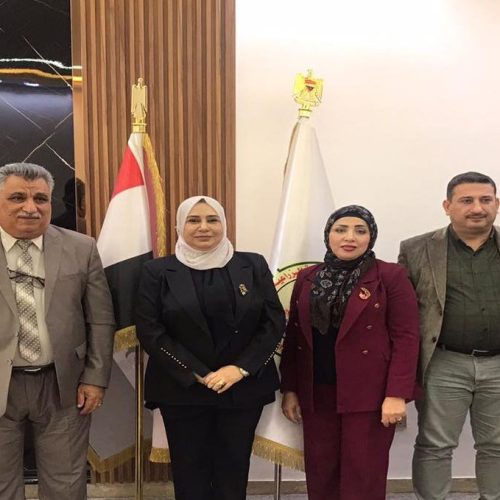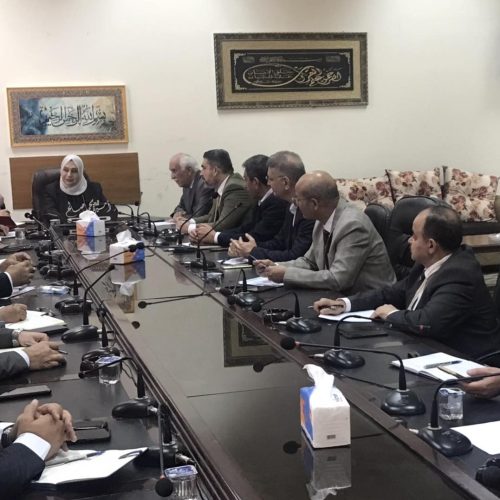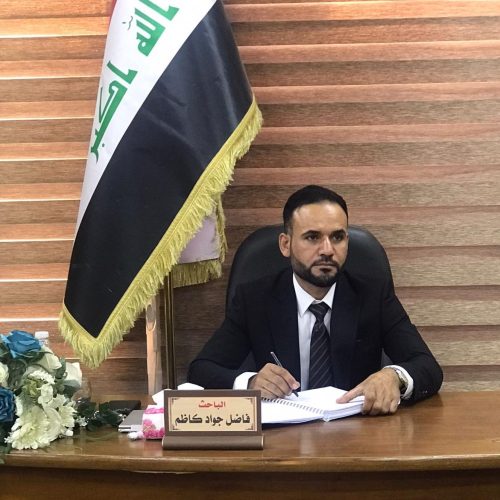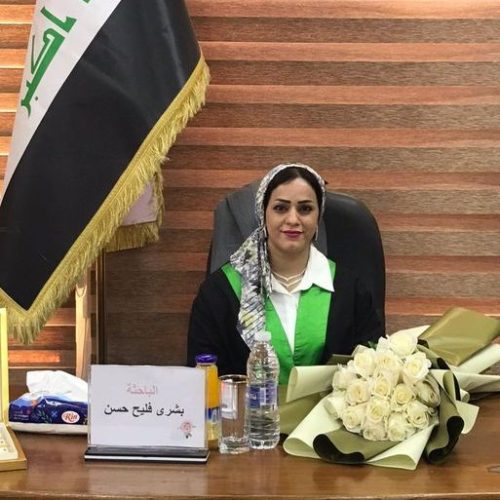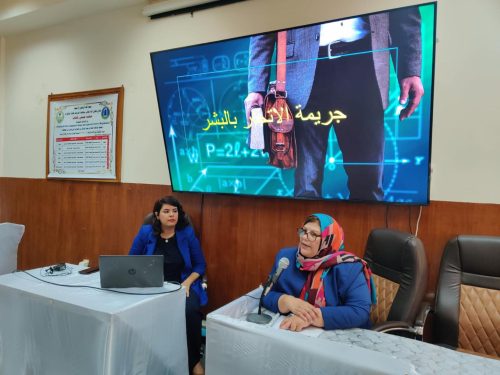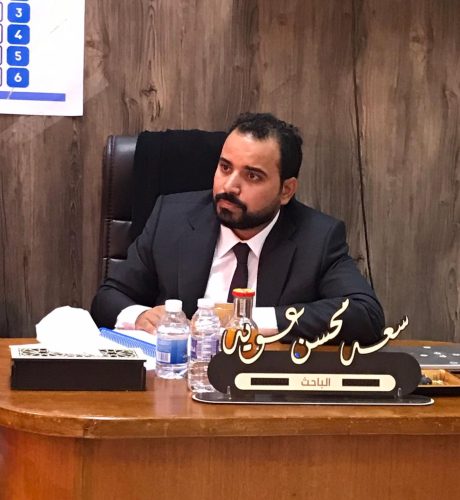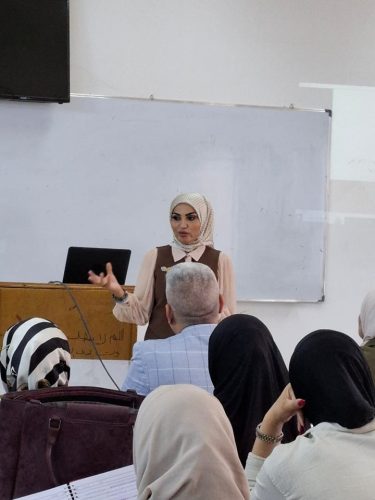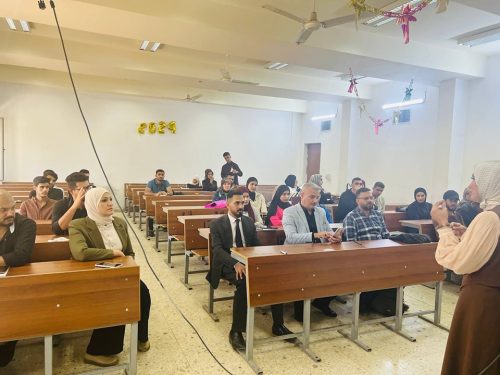The Palm Research Unit at the College of Agricultural Engineering Sciences, University of Baghdad, organized a workshop titled “Important Methods for Controlling the Red Palm Weevil.” The workshop was delivered by Eng. Ahmed Hasan.
He explained that the red palm weevil is one of the most dangerous transboundary pests that has spread rapidly due to weak agricultural quarantine measures and the difficulty of early detection. It typically infects various parts of the palm tree, including the site of offshoot separation, areas of excessive pruning, and wounds, especially on young trees less than ten years old.
New infestations appear as brown, foul-smelling gummy secretions with tunnels and small holes that, if neglected, turn into large cavities in the trunk. Among the most important control methods are pesticide injection for early cases, or cleaning the infected cavities, spraying them, and using Phostoxin tablets with airtight sealing in advanced cases.
Control measures include legislative methods through quarantine and preventing the movement of offshoots; mechanical methods by removing infected trees; biological methods using predators, parasites, and pathogens; behavioral methods through pheromone traps; in addition to chemical control such as fumigation with ammonium phosphide, while adhering to safety conditions.
Recent innovations have also emerged, relying on precise sensor devices that detect larval activity inside the trunk, allowing for early treatment. Mauritania recorded a successful experience in combating this transboundary pest after its appearance there in 2015. It relied on the complete eradication of infected palm trees, the installation of pheromone traps, the application of strict agricultural quarantine, and awareness campaigns, which helped reduce the spread of this serious pest.
____________________________________
You May Also Like
